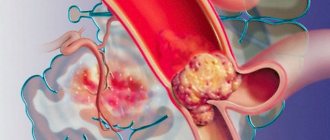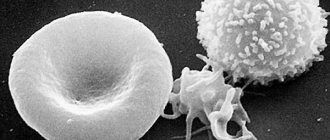Beneficial features
Omega-3 is essential for the brain.
Fish oil is known for its anti-carcinogenic properties. It not only helps reduce the risk of developing cancer pathologies, but also prevents weight loss in cancer patients. The use of the product allows you to minimize the risk of developing cardiovascular pathologies. It is used as a prophylactic against arrhythmia, which is manifested by heart rhythm disturbances. Daily use of fish oil helps lower blood pressure, improve skin condition, and alleviate psoriasis.
This product is simply necessary for patients suffering from arthritis to increase joint mobility and alleviate pain. The Omega-3 component promotes the synthesis of the hormone serotonin, which reduces anxiety and aggression. For this reason, fish oil is recommended for people suffering from depression. In addition, Omega-3 is necessary for the brain. It protects against insanity and senile dementia.
During pregnancy, women are often prescribed fish oil in addition to vitamins. It promotes the proper development of the fetal nervous system. Fish oil is an excellent immunomodulator. Its use promotes the production of prostaglandins - substances with strong anti-inflammatory properties.
Important! The daily intake of fish oil is 5 grams, and 100 grams of fish contains, depending on the type, from 3 to 10 grams of fat.
The benefits of river fish
Experts from the World Health Organization say that a person with high cholesterol levels should eat fish approximately twice every 7 days. Eating fresh product significantly reduces the risk of developing dangerous pathologies. Fish, especially river fish, is unique; it contains all the elements necessary for the human body. It is impossible to replace it with any analogues.
This is a favorite product of nutritionists. According to them, the digestion process takes about thirty minutes. Whereas it takes about 5 hours to digest meat.
The following types of fish exist:
- average;
- fat;
- skinny.
The approximate amount of easily digestible protein in this product is 15 percent. Fresh fish also contains such important elements for the human body as fluorine, zinc and phosphorus.
Many people are interested in the question of which fish contains more nutrients - sea or river. According to nutritionists, the greatest benefit is from seafood. It contains the amount of vitamins, macroelements and fatty acids necessary for the human body.
How to choose correctly
The correct choice of product is of no small importance. There are several recommendations that will help you avoid making mistakes in the market. You need to choose small fish, since large fish usually carry harmful substances.
Fresh fish has a specific aroma. It should not be too harsh or unpleasant. If there is any doubt about freshness, the product should be discarded.
Another important criterion is the elasticity of the product. You can check the freshness of the carcass by lightly pressing it with your finger. If the carcass slowly regains its shape, then the seller is trying to sell the stale product. The color of fish gills may vary. It depends on the type of product. If it approaches yellow or green, it is not worth buying.
It is also important to learn how to properly store fish. Fresh product can be stored in the refrigerator for no more than three days. In the freezer, the shelf life can be several months.
How to cook
River fish is defined by nutritionists as skinny. The fat content in this product is no more than 8 percent. It is the fish from the river that helps people prone to developing atherosclerosis to successfully fight the disease.
Proper preparation is of great importance. Correct heat treatment can significantly reduce the concentration of hazardous elements. Nutritionists recommend eating only boiled fish, as well as those cooked in the oven or steamed.
Be careful with fish cooked over charcoal. Considering that the product is often poorly fried, there is a risk that worms will appear in the body.
Eating fried fish is not recommended. People prone to developing kidney and cardiovascular pathologies should not get carried away with eating salted and dried foods. A good option is to eat stewed dishes. You can eat it with potatoes or any other vegetables.
Smoked fish can also adversely affect the human condition. The product prepared this way contains a considerable amount of carcinogens. If a connoisseur of fish dishes eats smoked meats regularly, the likelihood of developing a pathological process will be very high. The largest amount of carcinogens is found in hot smoked products.
Effect on cholesterol
Doctors often prescribe fish oil for high cholesterol.
Usually, to reduce the concentration of cholesterol in the blood, experts recommend taking statins, but these drugs have a fairly long list of side effects.
Atherosclerotic plaques are accumulations of cholesterol on the walls of blood vessels. Fish oil can destroy them and remove them from the body. This is due to Omega-3 polyunsaturated acid, which is present in fish oil in an amount of approximately 30% of the total volume. The use of this product helps:
- normalize the function of blood vessels;
- stabilize heart function;
- lower blood pressure;
- reduce the risk of stroke and heart attack;
- eliminate arrhythmia;
- in the prevention of the development of cardiovascular pathologies.
The appearance of atherosclerotic plaques on the walls of arteries interferes with the normal functioning of the circulatory system. Omega-3 acid helps to increase blood flow, which improves blood circulation, clearing away accumulations of fat that settle on the walls of blood vessels and clog them.
Scientists have proven the positive effects of fish oil on:
- diseases of the nervous system, Alzheimer's, attention deficit disorder, depressive states;
- a feeling of dryness in the eyes, glaucoma, age-related changes in the retina;
- prevention of discomfort that occurs in the fair half during the onset of menstrual periods;
- obesity, kidney pathologies, psoriasis, asthma;
- restoration of metabolic processes while taking anticancer drugs.
For high cholesterol
High triglyceride levels are a major risk factor for the development of cardiovascular pathologies. Thanks to research, it is known that Omega-3 acids help reduce triglyceride levels. Sometimes their concentration decreases to 20%. To achieve this result, you need to take 4 grams of fish oil per day for a long time.
It also helps to significantly reduce the level of high and low density lipoproteins. These forms of cholesterol are indicators of cardiovascular health.
If you are taking cholesterol-lowering medications, your doctor may want to reduce your triglyceride levels. For this, the doctor may choose fish oil. But with a high concentration of LDL and difficulties in controlling it, consultation with a specialist is required.
For low cholesterol
Fish oil is a lipid-like substance
There is an opinion that fish oil can increase cholesterol levels. It involves comparing fat with different types of oils. To date, long-term clinical trials have proven that this is not the case.
Fish oil for cholesterol prevention
Fish oil for high cholesterol has been used for a long time. Yes, now doctors often advise replacing it with vitamins D, D2, and D3, but this is not the best option. It is much more practical to correctly create your own diet, enriching it with healthy foods.
The good thing about this folk remedy is that it can be taken without consulting a specialist, so people often choose it as a preventive measure for serious diseases.
Preventive exposure to substances contained in food is irreplaceable. It's time to forget about the question of whether fish oil can lower cholesterol, since the answer has been given a long time ago. Yes, at one time experts suggested an alternative remedy, but it is more profitable to remember about a natural “drug”.
Contraindications
You should not take fish oil on an empty stomach. This can lead to belching, diarrhea, and intestinal cramps. Some people suffer from intolerance to fish and fish products, which leads to the development of allergic reactions: stomach upset, urticaria, anaphylactic shock.
It should not be used in patients suffering from hypotension.
The product contains both bad and good cholesterol. For this reason, its use can increase their content.
Fish oil reduces the absorption of vitamin E by the intestinal walls. Long-term use of the drug can cause a deficiency of this vitamin. This must be taken into account.
Patients with diabetes may develop hypoglycemia because the drug helps reduce insulin levels.
In addition, blood clotting decreases and the risk of bleeding during menstruation and nosebleeds increases. There is a danger for patients with hemophilia and von Willebrand disease.
Children usually do not suffer from fish oil intolerance, but when using it, the gender, height, age and weight of the child must be taken into account.
The product is believed to be effective in treating heart rhythm disorders, but studies in recent years have shown that it can cause cardiac arrest. For this reason, before using it, consultation with a specialist is necessary.
Often fish contains toxic substances. These are removed during the production of fish oil, but there is still a risk. For this reason, it is not always prescribed to children and women during pregnancy and breastfeeding.
You should not take fat if you have elevated levels of vitamin D and calcium, gallstones and urolithiasis, hyperthyroidism, or diabetes.
Scientists have found out
The risk of cardiovascular diseases directly depends on increased triglyceride levels. These elements are part of the cell membrane.
Scientists have conducted a number of studies in which they found that docosahexaenoic and eicosapentaenoic acids, which are part of the source of Omega-3 elements, help reduce the concentration of triglycerides. Moreover, you can achieve a reduction in the number of triglycerides by 20%.
Other American scientists drew attention to the fact that the beneficial substance promotes the breakdown of fats. Research results have shown that regular use of a product containing Omega acids helps reduce body weight.
It has been proven that Omega-3s obtained from food are absorbed much better than those that enter the body as supplements. Therefore, experts advise consuming seafood, and in boiled form. The healthiest is salmon.
The ability of fish oil to prevent the formation of blood clots and the development of atherosclerosis has also been confirmed by numerous scientific experiments. It was experimentally found that it is possible to reduce the content of “bad” cholesterol in the body after just a week of taking the product.
If you take 10 g of fish supplement every day, the incidence of angina pectoris will decrease by 40%.
How to use
If swallowed on an empty stomach, nausea and vomiting may occur.
The benefits of this product for the body are undeniable. You just need to use it after an appointment with your doctor. The instructions for using the product indicate how to properly drink fish oil to lower cholesterol levels. The following recommendations must be followed:
- for high LDL levels, the therapeutic course is 3 months. Every day you need to take 5 grams of the product;
- for prevention purposes, 1-2 capsules;
- when the cholesterol level does not reach a critical level, it will be enough to take 3 grams per day;
- To normalize blood pressure you need to drink 4 capsules within 12 hours.
Taking fish oil improves appetite. Therefore, it is necessary to increase physical activity so as not to gain excess weight by the end of therapy. The product has a specific smell. It must be swallowed without biting the capsule. This method will prevent flatulence. Capsules should be taken during meals. If swallowed on an empty stomach, nausea and vomiting may occur. During treatment, you need to have your blood tested every month to monitor your cholesterol levels.
Side effects
Taking the drug in large dosages can lead to the development of side effects:
- skin rashes;
- the appearance of back pain;
- unpleasant taste in the mouth;
- upset stomach;
- frequent belching.
But more serious undesirable effects may also occur, and if they occur, you should immediately consult a doctor:
- chest pain;
- arrhythmia;
- chills, fever, body pain;
- allergy.





